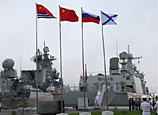
Island country could play key role in currency's expansion, experts say
Expectations that Singapore will have an expanded role in the offshore yuan business have accelerated local banks' move into new products for the currency.
Piyush Gupta, chief executive officer of DBS Bank Ltd, Singapore's largest commercial bank, said the city-state is well-positioned to be a yuan hub in Southeast Asia and a testing ground for new yuan-denominated products.
"We want to be a leader there, and we're working very hard on it", said Su Shan Tan, group head of consumer banking and wealth management at DBS.
She said the bank is developing yuan-denominated structured deposits to cater to client demand.
"With the establishment of offshore yuan clearing centers in Taiwan and Singapore, market confidence in accepting the yuan for trade settlements will rise," said Clifford Lee, managing director and head of fixed income, treasury and markets at DBS.
In turn, this will encourage more participation from corporations and banks, potentially increasing the range of yuan investment products, including bonds, he said.
Lee forecast the offshore yuan bond market will stand at somewhere between 1 trillion yuan ($163 billion) to 1.5 trillion yuan by 2015. The outstanding amount of such bonds reached 480 billion yuan over the past three years.
Ng Nam Sin, assistant managing director at the Monetary Authority of Singapore, said the island country would play a key role in introducing the yuan to a broader market, especially in southeast Asia, and have special advantages in developing the yuan wholesale market as well as facilitating China to open up the capital account.
"There are close to, I believe, 4,000 Chinese companies that have a presence in Singapore, conducting trade and investments between South Asia and China. These companies have their banking relationships with banks in Singapore, so Singapore plays a very important (role as an) intermediary for trade finance, for investments."
Singapore, which has a leading position in fixed income, capital markets, foreign exchange and investment banking, has been focusing on becoming an offshore Chinese yuan center, said Prime Minister Lee Hsien Loong.

















 Vehicles, pedestrians fall into river after bridge collapses in SW China
Vehicles, pedestrians fall into river after bridge collapses in SW China


![]()
